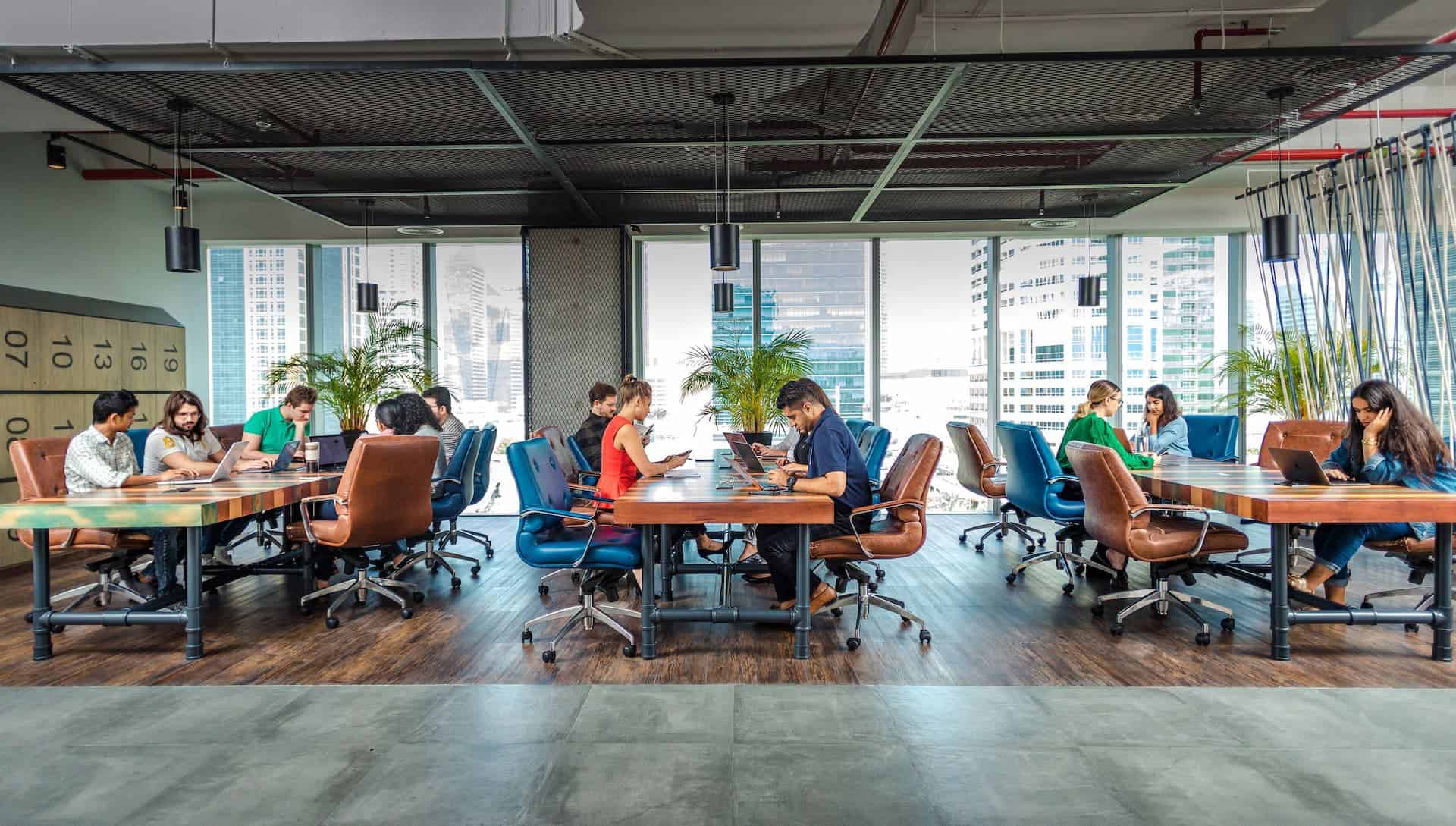Choosing the right office space is a crucial decision for your business. It affects everything from daily operations to employee satisfaction and client impressions. Asking the right questions can help you avoid costly mistakes and ensure you find a space that fits your needs.
In this article, you’ll discover essential questions to ask before committing to a lease, along with expert tips on understanding lease terms, location, and amenities. By the end, you’ll be better equipped to make an informed decision about your next office space.
10 questions to ask when renting office space
Below are the ten key questions to ask when seeking the ideal space for your business.
1. What is the total cost of the space?
Understanding the complete cost, including rent, utilities, and maintenance fees, ensures there are no surprises later. Ask for a breakdown of all charges to manage your budget effectively.
2. Are there any hidden fees?
Beyond the base rent, there may be additional fees for parking, building maintenance, or security. Make sure you ask for a detailed list of any extra costs.
3. How long is the lease term?
Knowing the lease duration helps you assess whether the space meets your long-term needs. Ask about any flexibility with the lease term and options for renewal or exit.
4. What is the policy on lease renewal and rent increases?
Clarify the terms for lease renewals, especially if your business grows. You will also need to understand how rent increases are handled so you can plan for future expenses.
5. What are the office hours and access policies?
Determine whether the office operates with 24/7 access or if there are restrictions on working hours. This will be important if your team works irregular hours or clients need to visit outside normal business hours.
6. Is there room for expansion?
If you anticipate growth, it’s important to know whether there’s the option to expand within the same building or location. Ask how easily you can upgrade to a larger space if necessary.
7. What amenities are included?
Office amenities can enhance employee productivity and satisfaction. Ask about available amenities, such as meeting rooms, kitchens, and parking facilities, as well as additional costs for using them.
8. What is the maintenance and repair policy?
Understanding who is responsible for repairs and maintenance ensures you won’t be caught off guard by unexpected costs. Ask about the response time for any required repairs as well.
9. How secure is the building?
Security is essential for protecting your business assets. Ask about building security measures, such as surveillance cameras, access control systems, and security personnel.
10. What are the parking options?
Parking is an essential consideration for businesses with employees or clients who drive. Ask if parking is included or available for an additional fee and how secure the parking area is.
With these questions answered, you’ll be prepared to navigate the complexities of office leasing. Next, we’ll discuss the importance of understanding lease terms and conditions to avoid potential pitfalls.
Understanding lease terms
Comprehending the details of your office lease is critical for protecting your business from unforeseen obligations. Below, we cover the areas of the lease agreement that should be reviewed before signing.
1. Lease duration and renewal options
The length of your lease can impact your business’s flexibility. Ensure you understand the exact term and inquire about renewal options. Knowing how to extend the lease or exit early will help you plan for both growth and unexpected changes.
2. Rent increases
Many leases include provisions for rent increases, often tied to inflation or market conditions. Make sure the lease specifies how and when these increases will occur, so your budgeting remains accurate over time.
3. Early termination policies
Sometimes, businesses need to relocate or downsize. To avoid future financial burdens, clarify the terms for early termination, including any penalties. Understanding your options for leaving before the lease ends can save you from costly surprises.
4. Subleasing options
Subleasing can offer flexibility if you need to vacate the space before your lease term is complete. Check if subletting is allowed and under what conditions, as it can provide an exit strategy should your needs change.
5. Maintenance responsibilities
It’s essential to understand who is responsible for maintaining the office space. Ask whether repairs and upkeep are the landlord’s responsibility or if you will be expected to cover these costs. This will prevent disputes over who handles certain maintenance tasks.
6. Insurance requirements
Some landlords require tenants to maintain specific insurance policies. Review these requirements carefully to ensure you meet all necessary obligations. Being underinsured could leave you vulnerable to unexpected risks.
Understanding these critical elements of a lease ensures that you protect your business interests. In the next section, we will explore how office location and accessibility play a significant role in your choice of space.
Location and accessibility
Choosing the right location for your office can significantly impact both daily operations and the overall success of your business. Below are key factors to consider when assessing the location and accessibility of a potential office space.
1. Proximity to clients and partners
The convenience of your office for clients and business partners should be a top consideration. Evaluate whether the location makes it easy for them to visit your office or conduct meetings. A central location may attract more business opportunities.
2. Access to public transportation
An office that is easily accessible via public transportation can benefit employees and clients alike. Ensure the space is near major transportation routes, such as metro stations or bus stops, to accommodate those who rely on public transit.
3. Parking availability
Parking can be a deciding factor for both employees and visitors. If the office has limited parking, check for nearby alternatives, such as public parking garages, and consider any additional costs or limitations for using them.
4. Local amenities
Nearby amenities can enhance your team’s work-life balance and attract clients to your office. Restaurants, cafes, and gyms within walking distance can be a bonus for employees and visitors alike.
5. Neighborhood safety
Safety plays a critical role in how comfortable employees and clients feel at your office. Research the surrounding neighbourhood to ensure it’s a safe environment, particularly if your team will be working late or you expect frequent client visits.
6. Traffic patterns
Traffic congestion can affect punctuality and productivity. Assess the traffic patterns during peak hours to gauge how easy it will be for employees and clients to access the office. Consider whether the location has good road connectivity or traffic is a consistent issue.
Taking these location factors into account will help you choose a workspace that fits your operational needs and client expectations. In the next section, we’ll explore the importance of office amenities and flexibility.
Office amenities and flexibility
The amenities provided by an office space and its flexibility to adapt to your business’s changing needs are critical to fostering productivity and growth. Below are some key aspects to evaluate when considering the available facilities and options for adjusting your workspace over time.
1. Meeting and conference rooms
A well-equipped office should offer access to meeting and conference rooms, especially if your business hosts frequent client meetings or team discussions. Ask about availability, booking policies, and any extra fees associated with these spaces.
2. Kitchen and break areas
Having a designated area where employees can relax, eat, and recharge is essential for maintaining morale. A functional kitchen or break room, stocked with basic appliances and seating, can greatly improve the overall work environment.
3. High-speed internet and technology infrastructure
Reliable internet access is a non-negotiable in today’s business world. Confirm that the office space offers high-speed internet and the necessary technological infrastructure to support your team’s workflow without interruptions.
4. Furnishing and design options
Some office spaces come fully furnished, while others allow you to customise the design. If your business requires a specific layout or branding, check whether the landlord permits modifications to the office interior and inquire about any additional costs involved.
5. Shared facilities
Co-working spaces often come with shared facilities such as printers, scanners, and reception services. Evaluate whether these services align with your business needs and if they are included in the rental price or require an additional fee.
6. Flexibility to expand or downsize
Your business needs may change over time, and the ability to expand or downsize without significant hassle is an important consideration. Check if the office provider offers flexible lease terms or the option to move to a larger or smaller space within the same building or network.
Assessing the available amenities and flexibility will help ensure that your workspace supports your current operations and future growth. In the next section, we will introduce One Business Centre and explain why it is an excellent choice for renting office space in Dubai.
About One Business Centre
One Business Centre (OBC) offers premium office spaces in Dubai, providing businesses with modern amenities, flexible lease options, and prime locations in JLT, Dubai Media City, and Downtown Dubai. Whether you need a small office or a larger workspace, OBC can accommodate your requirements while ensuring a professional environment. With 24/7 access, state-of-the-art facilities, and a focus on convenience, OBC makes office leasing simple and efficient.
Contact us today to learn more about our office rental options.




